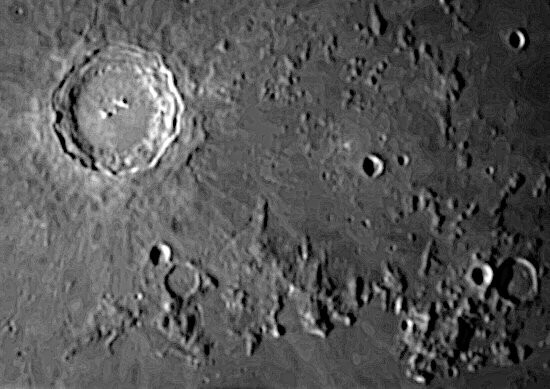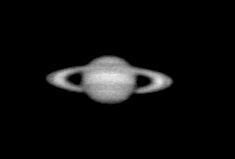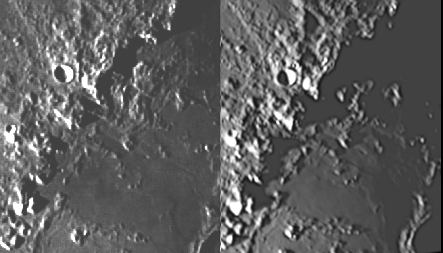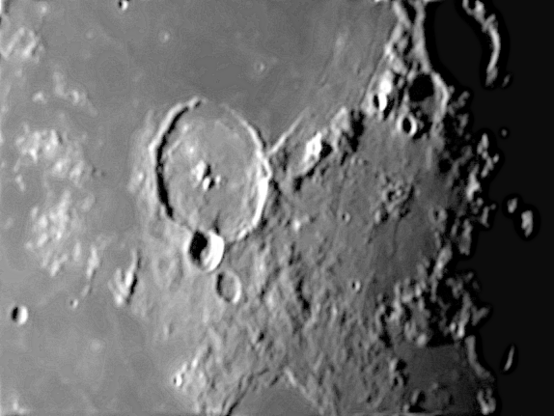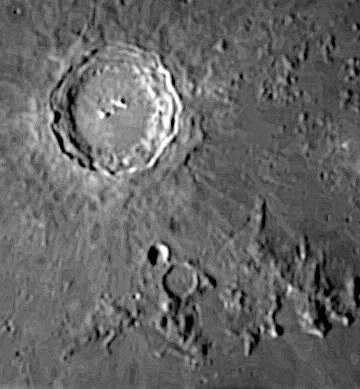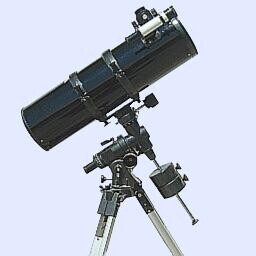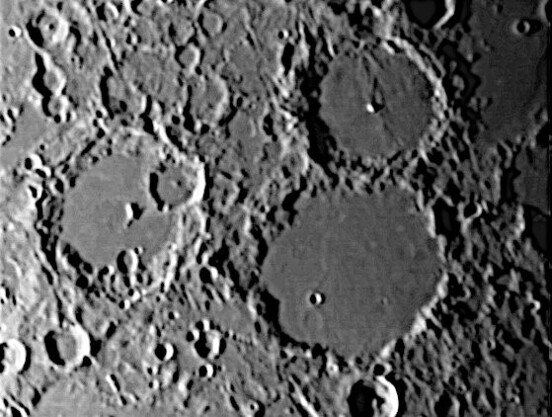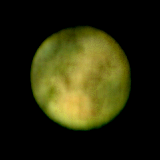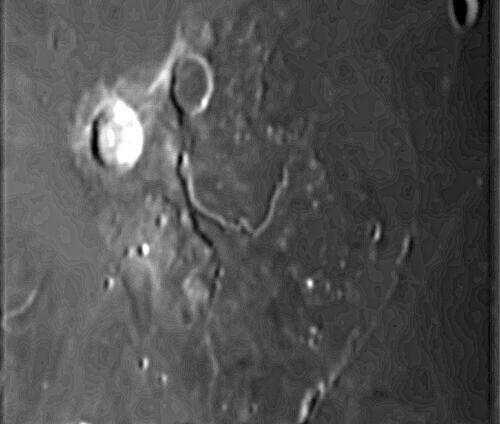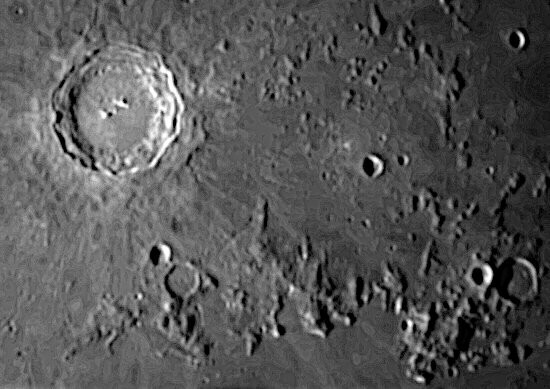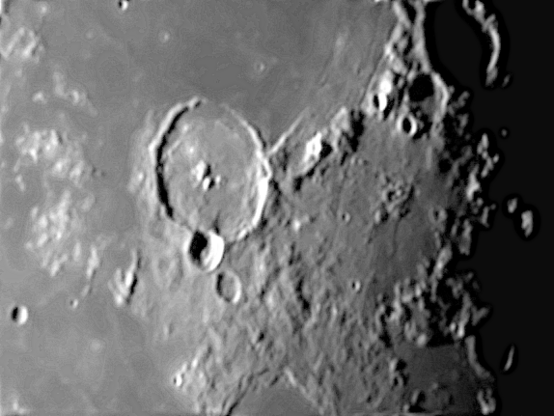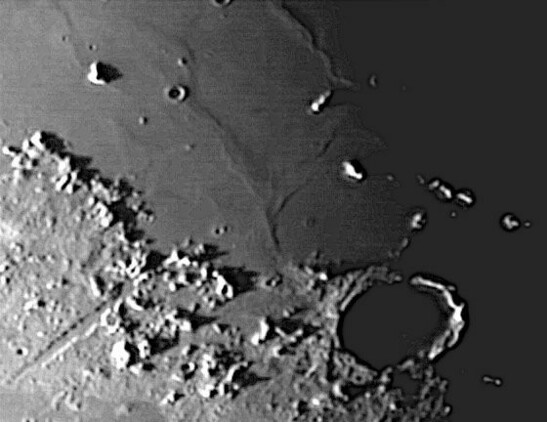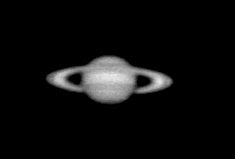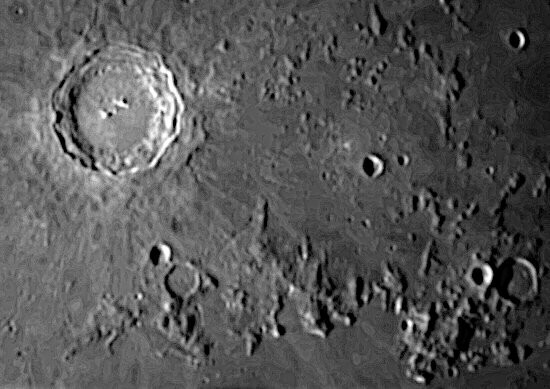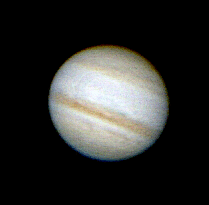Larry Smith · @stargazersmith
788 followers · 35495 posts · Server social.linux.pizza@Astrobum
Very nice image of Copernicus crater. A lot of zoom potential there.
You can see the difference aperture makes when comparing your high resolution image with my best Copernicus image captured with my #ETX90. I think the ETX did a heck of a job, but your image clearly shows that all else being equal, aperture rules.
Larry Smith · @stargazersmith
761 followers · 34904 posts · Server social.linux.pizza@estherhanko
Here's my best #saturn photo taken with an #ETX90 . It pales in comparison to your photo.
Larry Smith · @stargazersmith
659 followers · 30528 posts · Server social.linux.pizza@65dBnoise
I've dug through my multiple efforts at moon photography and produced a few #3DMoonPics. The 3D effect is from lunar libration.
Here is one of the #LunarApennines taken on two different occasions with my #ETX90.
#3dmoonpics #lunarapennines #etx90
Larry Smith · @stargazersmith
659 followers · 30528 posts · Server social.linux.pizzaLarry Smith · @stargazersmith
659 followers · 30528 posts · Server social.linux.pizza@cafuego
I've done some lunar and planetary photography with an early version #ETX90 . It is a version with a simple base with non-computerized drive. You may have read about the ETX, great optics but crummy mount.
I had to modify the drive electronics to even hope to use the device for simple astrophotography. I added a small hand held controller that had 2 momentary switches, one sped up the drive, one turned it off.
Some photos with it are here:
https://afterdark-skies.blogspot.com/p/etx-90-lunar-and-planetary-photos.html?m=1
Larry Smith · @stargazersmith
659 followers · 30528 posts · Server social.linux.pizza@Astrobum
That's a great portrait. I don't have the equipment for such sharp images over that scale.
I can do #moon photos at smaller fields of view, like this #Copernicus image taken with my #ETX90.
Larry Smith · @stargazersmith
577 followers · 23620 posts · Server social.linux.pizza@deepskies
I have a few portable telescopes.
An #etx90
6 inch f/5 #rft
#Nexstar5SE
Larry Smith · @stargazersmith
577 followers · 23622 posts · Server social.linux.pizza@world_beauty
Love it. I remember being almost overwhelmed with the early space probe images of the moon. I'd already been a captivated moon observer for years.
My tiny but powerful #etx90 captured the same field some years ago. This image is rotated about 180 from the Ranger photo.
Larry Smith · @stargazersmith
348 followers · 13258 posts · Server social.linux.pizza@Xrmmike
Wow! Eye popping.
Beats my effort with my lowly #Etx90 back in the #MarsOpposition in 2016.
Larry Smith · @stargazersmith
269 followers · 9624 posts · Server social.linux.pizzaLarry Smith · @stargazersmith
270 followers · 9646 posts · Server social.linux.pizza@JohnBarentine
I love the Aristarchus region. For the longest time I thought there were two rills trailing off from the Crater. I finally realized that one was actually shadow cast by a difference in terrain height.
Here's a shot of #Aristarchus taken with my #ETX90 some years ago.
Larry Smith · @stargazersmith
240 followers · 8104 posts · Server social.linux.pizza@jake_snowflake
I put to you a challenge. Here's my best #ETX90 photo of Copernicus crater. Have you taken one with your 80ED? It would be interesting to compare a 90mm #Maksutov #MoonPhoto with central obstruction to a clear #aperture #80ED.
#stargeezer #80ed #aperture #moonphoto #maksutov #etx90
Larry Smith · @stargazersmith
240 followers · 8104 posts · Server social.linux.pizza@philo
That's a very sharp image. It shows the superiority of the #C8 over my modest #ETX90. But just for the comparison, here's my ETX 90 version of #GassendiCrater.
#stargeezer #moon #gassendicrater #etx90 #c8
Larry Smith · @stargazersmith
230 followers · 7664 posts · Server social.linux.pizza@nlskies
I bet that Skywatcher is great for high resolution targets. Even my little #ETX90 does an admirable job on #SolarSysyem objects and #DoubleStars. For some years I thought about getting a 125mm Mak, but settled for an f/10 6 inch planetary #dob.
#DOB #doublestars #solarsysyem #etx90
Larry Smith · @stargazersmith
230 followers · 7664 posts · Server social.linux.pizza@ShakataGaNai
Nice. Much better than my first efforts.
In no time if you stick with it you'll get images like below, captured with a #CelestronNexImage camera through a similar sized telescope.
The NexImage is basically a web cam adapted for photography through a telescope. An #ETX90 was used for this image.
L Smith · @stargazersmith
224 followers · 7209 posts · Server social.linux.pizza@rambaut
My ETX90 is used in equatorial mode. My NexStar 5SE is used in alt/az mode. The NexStar has an equatorial configuration, but it's clumsy to implement.
L Smith · @stargazersmith
224 followers · 7209 posts · Server social.linux.pizza@nicolasaigues
Yes, the picture with with the #ETX90. I've tried numerous times with #Saturn, most images were throwaways. This is the only usable one I obtained. I've seen others do better with the ETX, but I don't know what they did differently.
L Smith · @stargazersmith
224 followers · 7209 posts · Server social.linux.pizza@nicolasaigues
That is a fine photo of Saturn. I'm not sure most people realize how hard it is to get a good photo of Saturn through a telescope.
Saturn is quite far out, twice that of Jupiter, and thus isn't very bright. Getting the rings, Cassini division, and any planetary detail isn't easy.
I've had little luck, much less than you. This is my best effort with my little ETX 90. I had to go B/W because of the low light.
L Smith · @stargazersmith
142 followers · 4199 posts · Server social.linux.pizza@philo
I really like that #Copernicus image. If I'm looking at the #moon, I'll always give it attention if visible. You captured a lot of details.
I can't tell you how many times I thirsted for a C8 telescope. The cycle would always go : Questar, no too costly. C8, much better deal. No, too costly. Finally I got an #ETX90.
Here's my best image of Copernicus with my little #ETX90. Not quite the details you got, but ok. I used a Celestron NextImage camera, stacking about 60 frames.
L Smith · @stargazersmith
142 followers · 4199 posts · Server social.linux.pizza@hendric
The final Jupiter result is very good. The refined image like you produced takes a lot of meticulous work, and you did it well.
The biggest telescope I have is a 6 inch, but it's an f/5 and not great for planetary images. So I mostly use an #ETX90 and a NexStar 5SE, both a bit smaller than your scope.
The best #Jupiter image I've managed is from 2010. Ok for a 3.5 inch, mostly notable for the missing SEB. The SEB did a disappearing act in 2010. A stack of about 50 frames.
